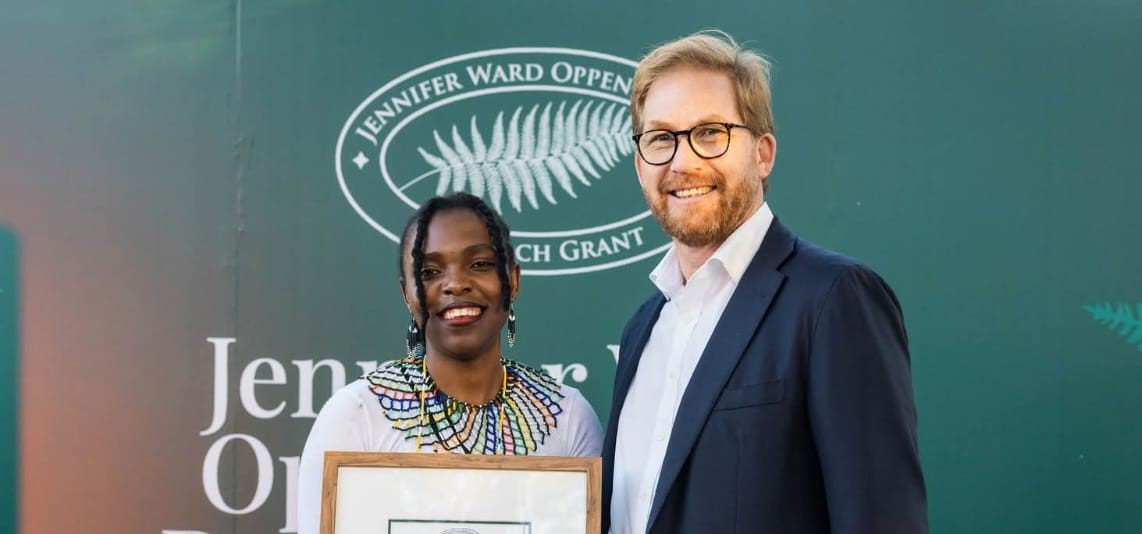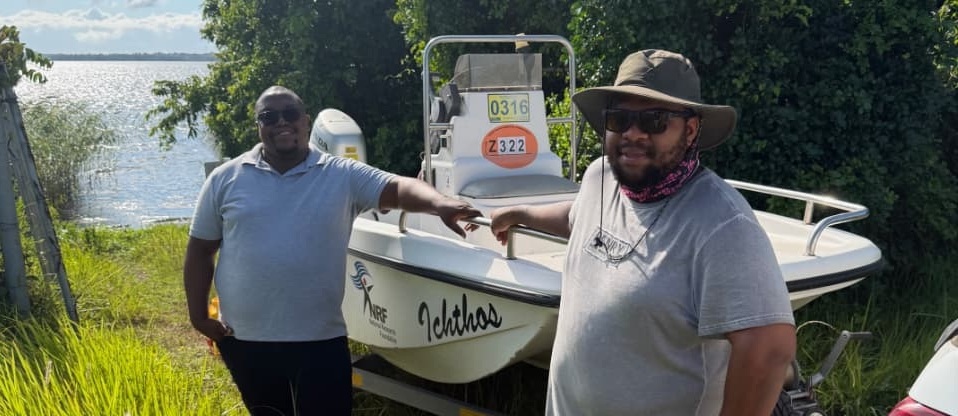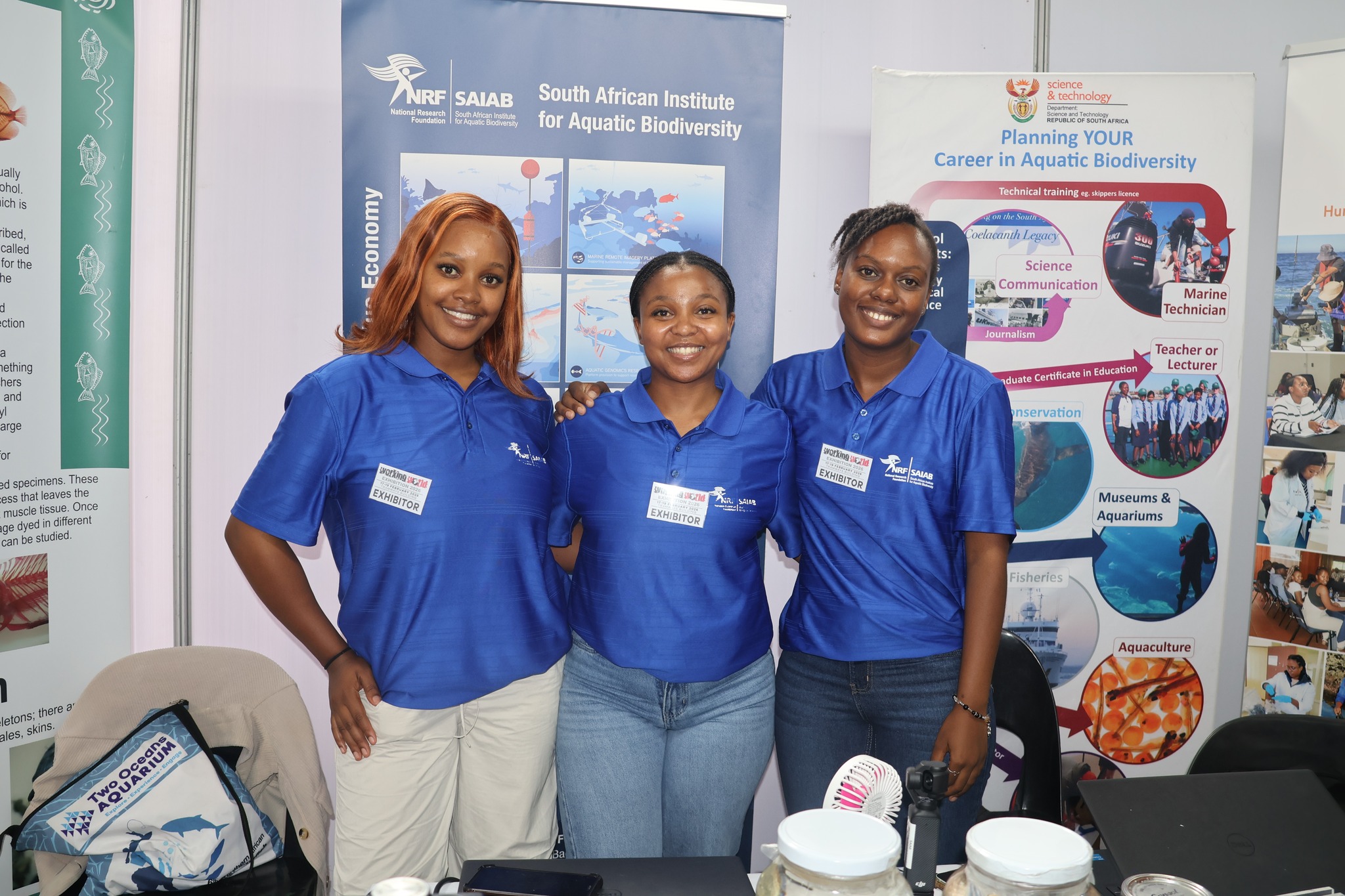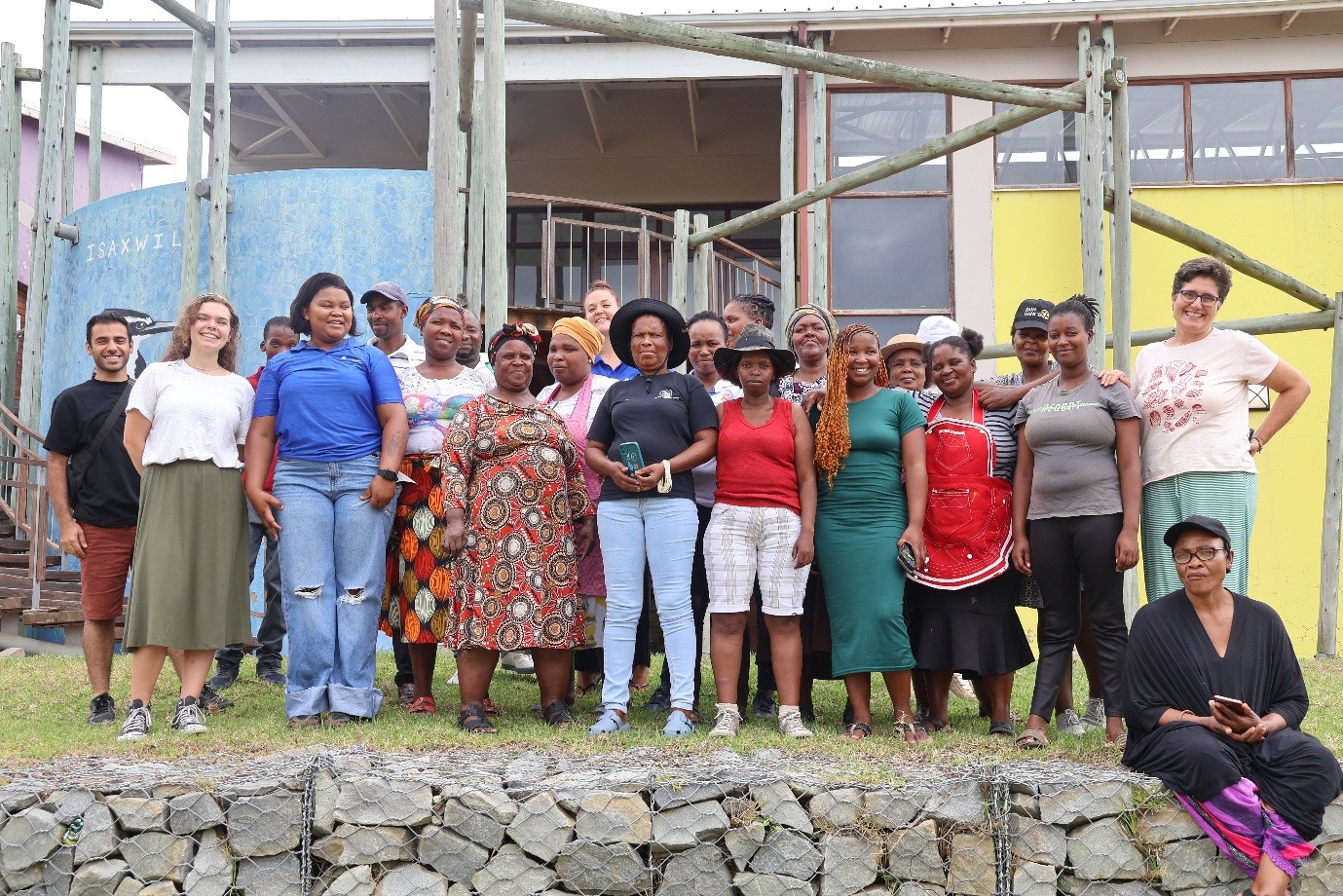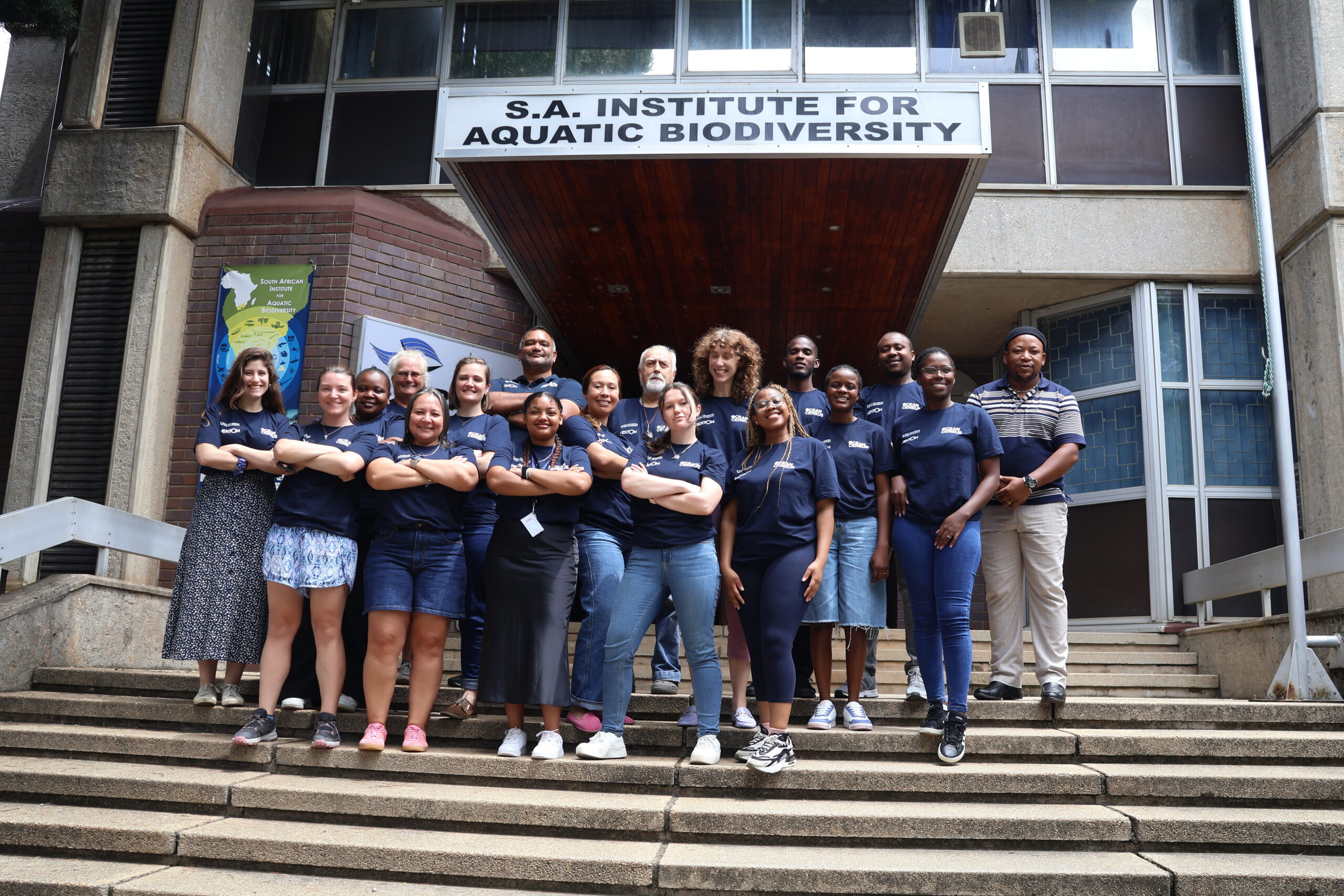NRF-SAIAB Postdoctoral Research Fellow, Dr Nompumelelo Baso-Mdiza, has been announced as the 2025 recipient of the prestigious Jennifer Ward Oppenheimer Research Grant, valued at 150 000 USD – an achievement she describes as “surreal.”
“It felt surreal when they called my name in front of all the esteemed natural scientists” she said. “This award is not only a personal milestone but also a recognition of the important work happening in African freshwater science. I felt deep gratitude to my mentors, collaborators, and the ecosystems that continue to inspire my curiosity every day.”
Her winning project looks at how climate change and biological invasions are reshaping aquatic food webs in southern Africa. “We use stable isotopes to trace energy pathways, essentially mapping who eats whom, to understand how invasive species and changing climate conditions alter the balance of ecosystems,” she explained. “This work will help us predict and manage cascading effects that could threaten biodiversity and vital ecosystem services.”
Dr Baso-Mdiza’s passion for aquatic ecology began early. “Growing up in a small village in the Eastern Cape, nature was my playground. So I have always been fascinated by the hidden connections that hold ecosystems together,” she said. “During my PhD, I witnessed the devastating effects of invasive species first-hand when we went to sample rivers chocked by Oxygen weed (Lagarosiphon major) across New Zealand. I saw how its dominance can affect the higher trophic levels, including fish and invertebrate communities. Studying these interactions through a biogeochemical lens will help not to only quantify the effects, but also to see the bigger picture in terms of effect on livelihoods. It is both detective work and storytelling for nature.”
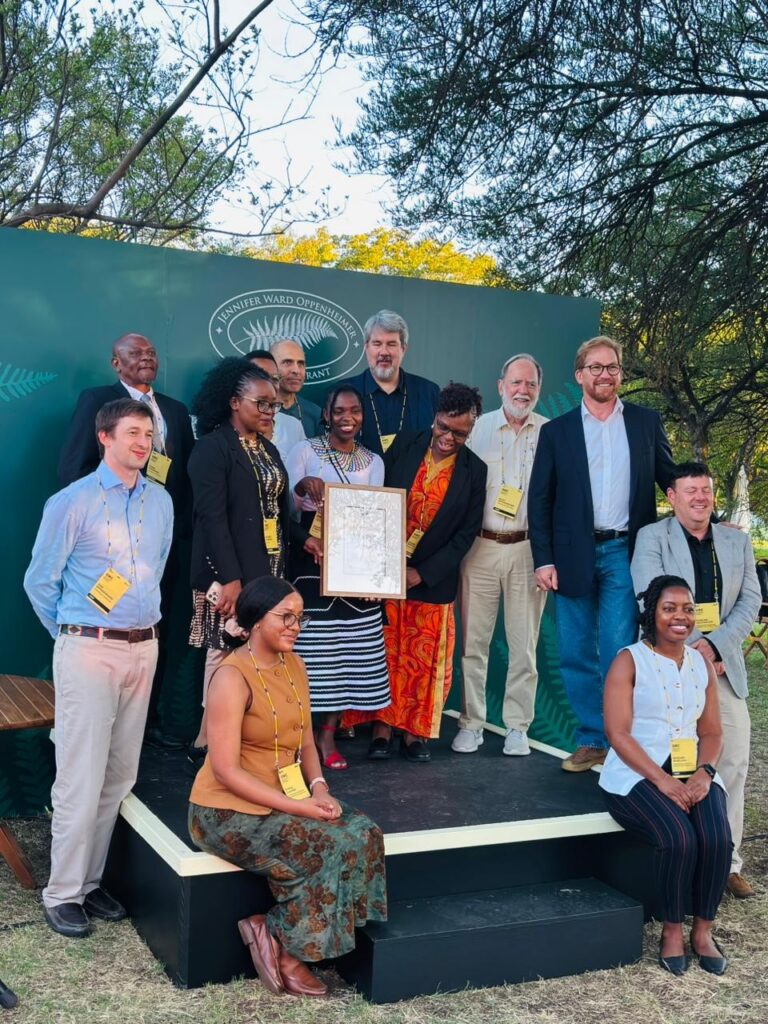
Dr Baso-Mdiza with the selection panel and funders of the Jennifer Ward Oppenheimer Research Grant.
Her research carries a strong sense of purpose for the continent. Dr Baso-Mdiza states that Africa’s freshwater systems are globally significant but remain underrepresented in ecological models, therefore, she wants her work to fill that gap by providing African data, African perspectives, and African solutions. “Beyond publications, I hope to contribute to building local capacity in stable isotope ecology and data analysis by empowering the next generation of young researchers to generate insights that shape conservation and policy across the continent.”, she added.
Dr Nompumelelo believes that the grant aligns perfectly with her project’s mission. “The grant’s mission and my project share the same common goal: evidence-based solutions for sustainable African ecosystems. My research addresses real-world challenges such as invasive species, water security, and climate change. These are not only scientific issues but also community issues.” The project supports continental environmental goals through collaborative fieldwork, data sharing, and mentorship.
With this award, Dr Baso-Mdiza plans to expand her research reach and build stronger collaborations. “This grant allows me to expand field sampling across more regions and seasons, which is essential for understanding ecological dynamics,” she said. “It also opens doors for collaboration with international isotope labs and African institutions, promoting knowledge exchange. For example, I can now join my colleagues in Zimbabwe who are working on Amazon frogbit invasion in the region. More importantly, it gives me a platform to communicate science in ways that reach both policymakers and the public.”
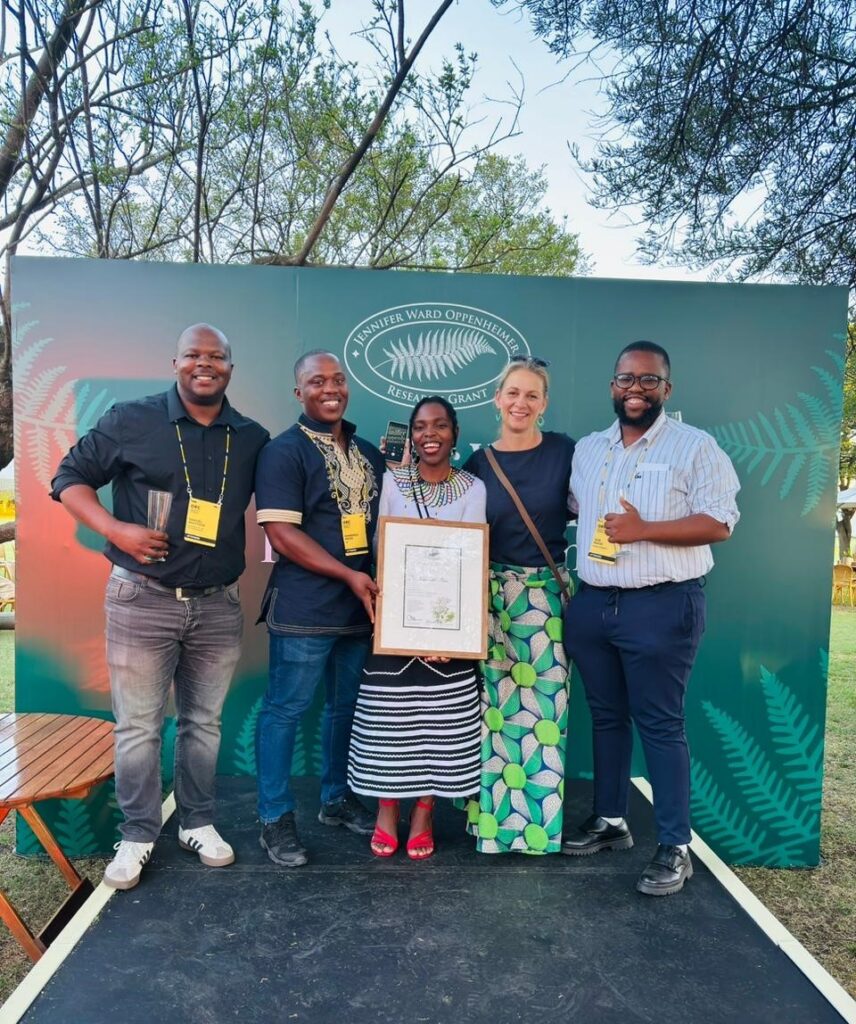
Dr Nompumelelo Baso-Mdiza celebrates win with her academic mentor, Professor Julie Coetzee (NRF-SAIAB Principal Scientist: DSTI/NRF SARChI Chair) and colleagues.
Her journey, however, has not been without challenges. “Fieldwork in aquatic systems can be unpredictable with weather changes, logistical issues, and equipment failures, but these experiences teach resilience. As a woman scientist and a mother, balancing research and family life has also been a challenge. I have learned to build supportive teams and set clear boundaries that allow me to be fully present in both roles.”
Dr Baso-Mdiza acknowledges the people who have shaped her success. “I owe a lot to my mentor and academic mother, Professor Julie Coetzee. She saw and continues to see my potential, even during moments of self-doubt. I am also grateful for colleagues at Rhodes University and NRF-SAIAB who encourage both critical thinking and scientific courage. My husband has been my anchor and my biggest supporter. And my daughter constantly reminds me why curiosity matters. She finds wonder in everything, which helps me keep my science grounded in joy, and in knowing that I am contributing to ensure we live a better world for her and future generations.”
Looking ahead, Dr Baso-Mdiza is already planning her next steps. “This is just the beginning,” she said. “Over the next few years, I plan to build a climate–invasion research network and develop an open-access dashboard to visualise how environmental change is shaping our freshwater ecosystems. It is a way to turn data into decisions and ensure that science speaks beyond the lab.”
